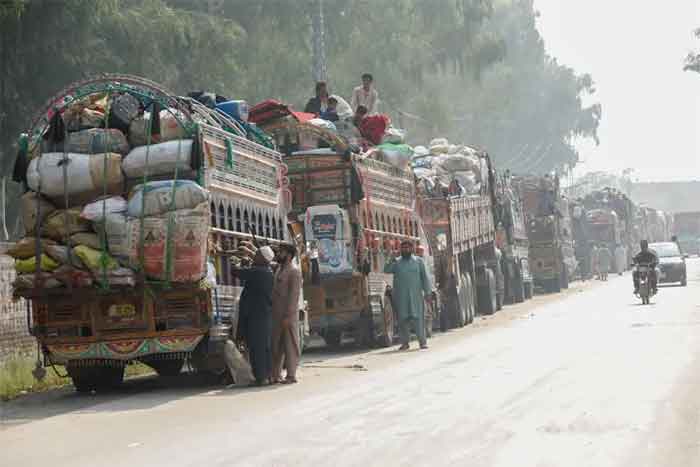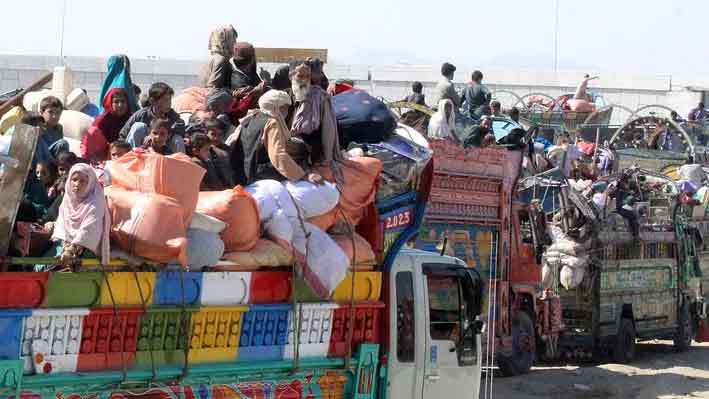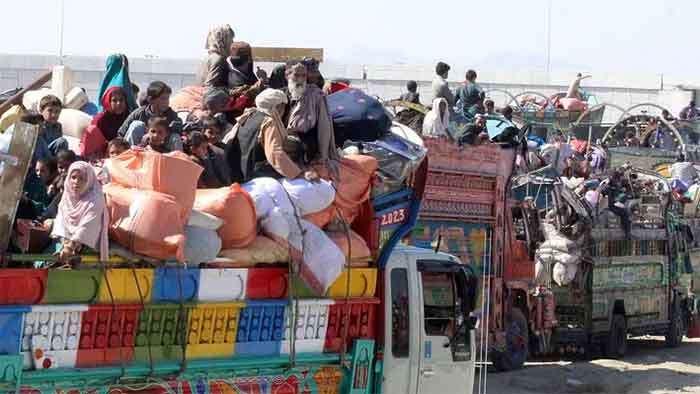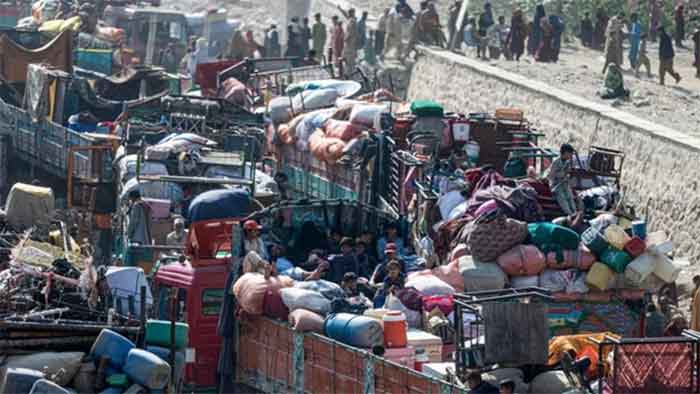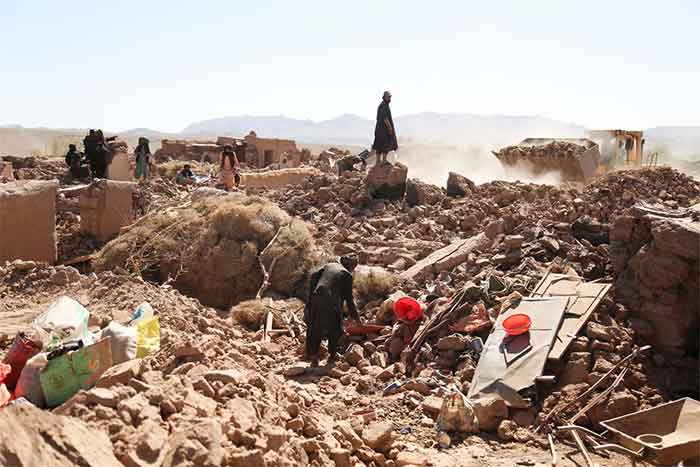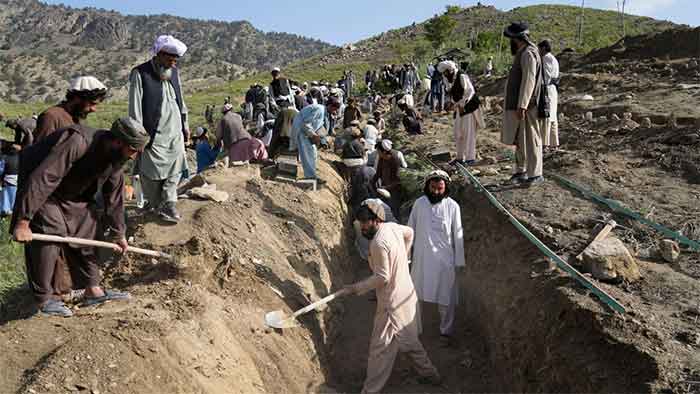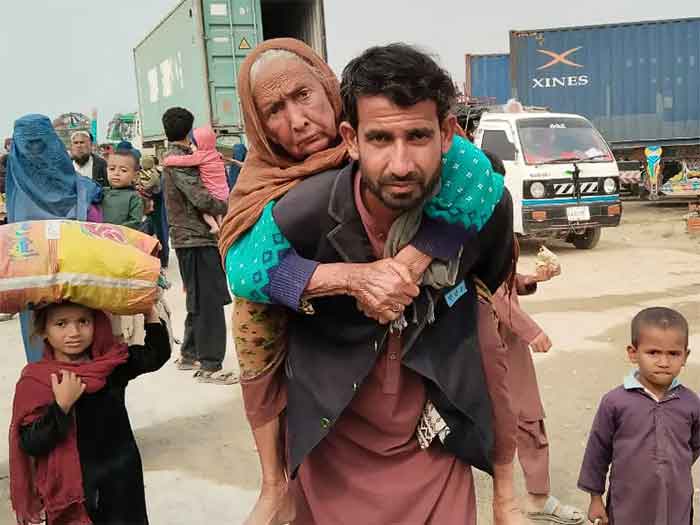
Across the globe, refugees, always treated as the pox of public policy, continue to feature in news reports describing anguish, despair and persistent persecution. If they are not facing barbed wire barriers in Europe, they are being conveyed, where possible, to third countries to be processed in lengthy fashion. Policy makers fiddle and cook the legal record to justify such measures, finding fault with instruments of international protection such as the United Nations Refugee Convention of 1951.
A very dramatic example of roughing up and violence is taking place against Afghans in Pakistan, a country that, despite having a lengthy association with hosting refugees, has yet to ratify the primary Convention. Yet in March 2023, the UNHCR noted that Pakistan hosted 1.35 million registered refugees. The organisation praised Pakistan for its “long and commendable tradition of providing protection to refugees and asylum-seekers”, noting that the current number comprised “mainly Afghan refugees holding Proof of Registration (PoR), as well as a small number of non-Afghan refugees and asylum seekers from other countries such as Myanmar, Yemen, Somalia and Syria.”
Such a rosy assessment detracts from the complex nature of the status of Afghans in that country, characterised by, in some cases, the absence of visas and passports, the expiration of visas and the long wait for renewals. Then comes the tense, heavy mix of domestic politics.
On September 15, the federal government ordered all individual Afghans residing in the country illegally to leave the country by November 1 or face deportation. The order affects some 1.7 million Afghans residing in the country, though the figures on the undocumented vary with dizzy fluctuations.
It is proving disastrous for those vulnerable individuals who fled a country where the Taliban has returned to power. To date, 400,000 are said to have left Pakistan via border crossings in Khyber Pakhtunkhwa and Baluchistan, with one estimate from the International Rescue Committee suggesting that 10,000 are being returned to Afghanistan each day. These include the whole spectrum of vulnerable persons: women, girls, human rights activists, journalists and those formerly in the employ of the previous Western-backed government.
The picture is an ugly one indeed, complicated by Pakistan’s own domestic ills and complex relationship with Kabul. During the course of the vacuously named Global War on Terror, Afghanistan came to be seen as a problem for Pakistani security, its refugee camps accused as being incubators for fractious Afghan militants. Kabul, at that point yet to return to Taliban control, accused Islamabad of destabilising its own security by providing sanctuary for those very same militants. In the aftermath of the killing of former Afghan President Burhanuddin Rabbani in September 2011, the victim of a daring suicide attack on his residency, Pakistan’s then Foreign Minister, Hina Rabbani Khar, proved roundly dismissive: “We are not responsible if Afghan refugees crossed the border and entered Kabul, stayed in a guest house and attacked Professor Rabbani.”
The latest chapter of demonisation comes on the coattails of the US withdrawal from Afghanistan in August 2021. Brutal night raids by police, featuring beatings, ominous threats and detention, have become the hallmarks of the expulsion campaign. The police forces, themselves spoiled by corruption and opportunism, are prone to pilfering property, including jewellery and livestock.
In October, Mir Ahmad Rauf, who heads the Afghan Refugees’ Council in Pakistan reported “widespread destruction of Afghan homes in Islamabad’s B-17, Karachi, and other parts of Pakistan.” Last month, the United States Commission on International Religious Freedom issued a statement expressing concern at “reports of increased detainment, violence, and intimidation against the Ahmadiyya and Afghan refugee communities” in the country.
To add to this failure of protection is the status of many who, despite being Afghan, were born in Pakistan and never set foot in Afghanistan. In 2018, Pakistan’s then Prime Minister Imran Khan announced that his government would be amenable to granting citizenship to Afghans born in the country. The promise (amenability is always contingent) was never enacted into law, and Khan is now persona non grata with Pakistan’s usurpers.
The protective, humanitarian burden for processing claims by Afghans in other countries has also been reluctantly shared. To return to Afghanistan spells potential repression and persecution; but to find a country in the European Union, or to seek sanctuary in the United States, Australia and others, has been nigh impossible for most.
When asylum has been considered, it has often been done with an emphasis on prioritising the contributions of men who had performed military and security roles in the previous Western-backed Kabul administration. There is a delicious irony to this, given the evangelical promises of US President George W. Bush to liberate the country’s women from the clutches of obscurantist fundamentalism.
On December 1, a three-member bench of the Pakistani Supreme Court sought responses from the various arms of the government, including the apex committee led by the Prime Minister, foreign office, and army chief on their decision to expel Afghan nationals. Given the caretaker status of the current government, which has all but outsourced foreign policy to the military, including the “Afghan issue”, legal questions can be asked.
One of the petitioners to the court, Senator Farhatullah Babar, states that current government members are technically unelected to represent the country. “So, the court would need to decide whether a caretaker government with such a restrictive mandate can take such a major policy decision, and in my view, this is beyond the power of the caretaker government.” Those Afghans remaining in Pakistan can only wait.
Dr. Binoy Kampmark was a Commonwealth Scholar at Selwyn College, Cambridge. He currently lectures at RMIT University. Email: [email protected]

